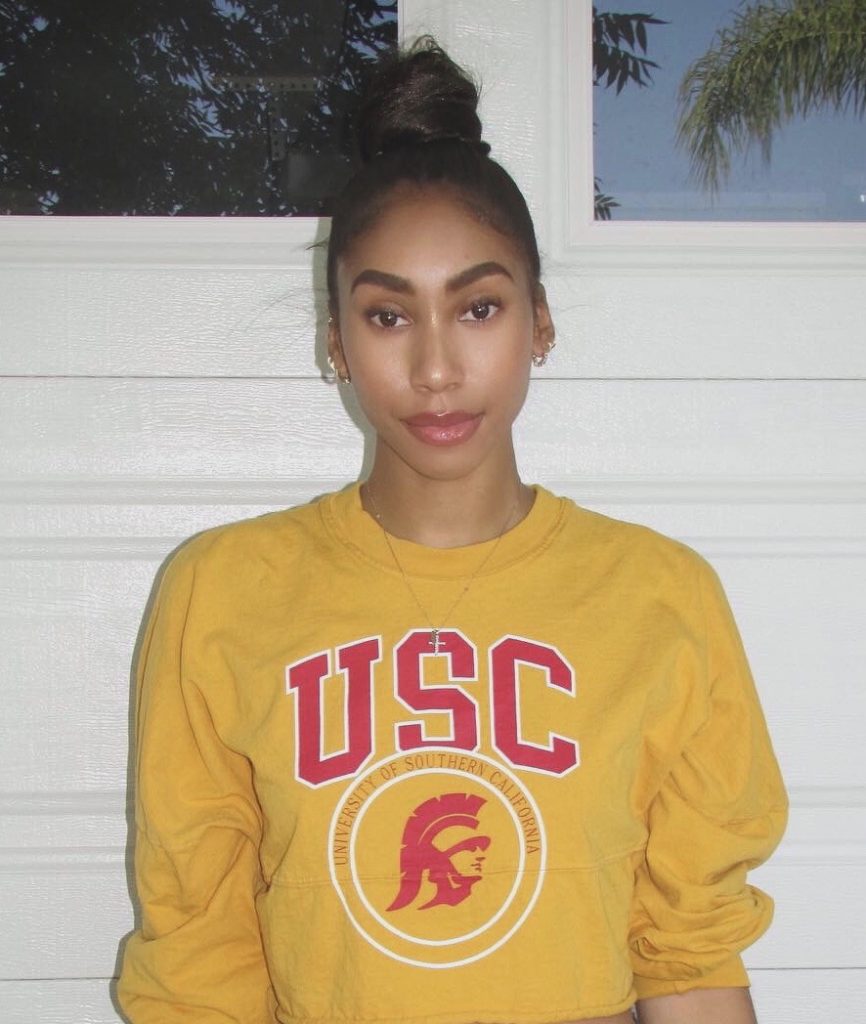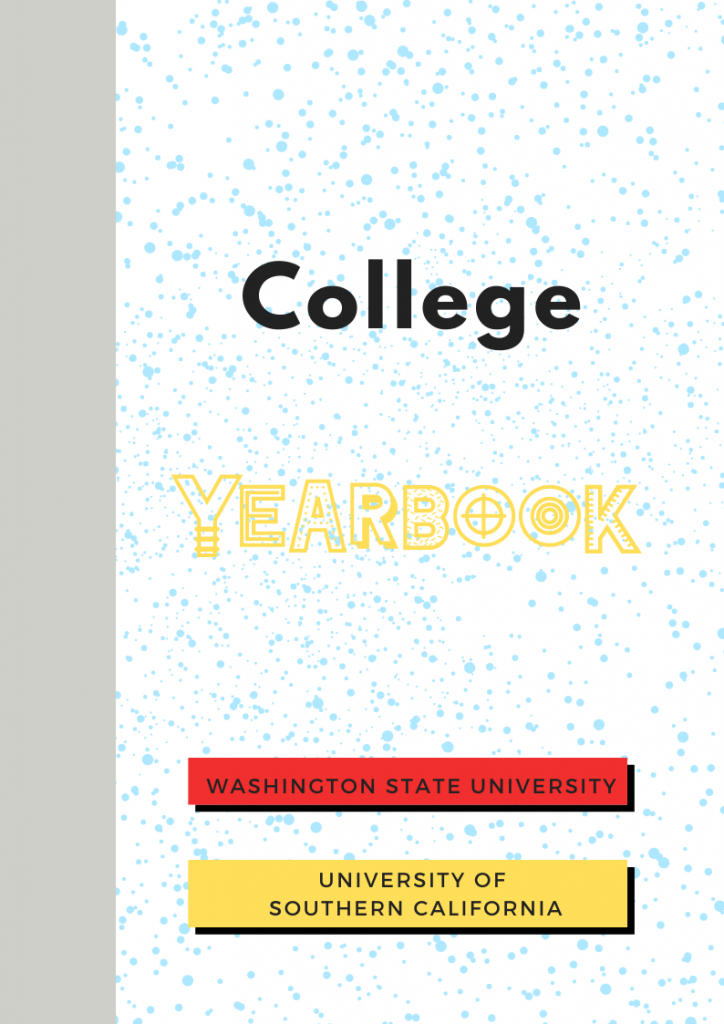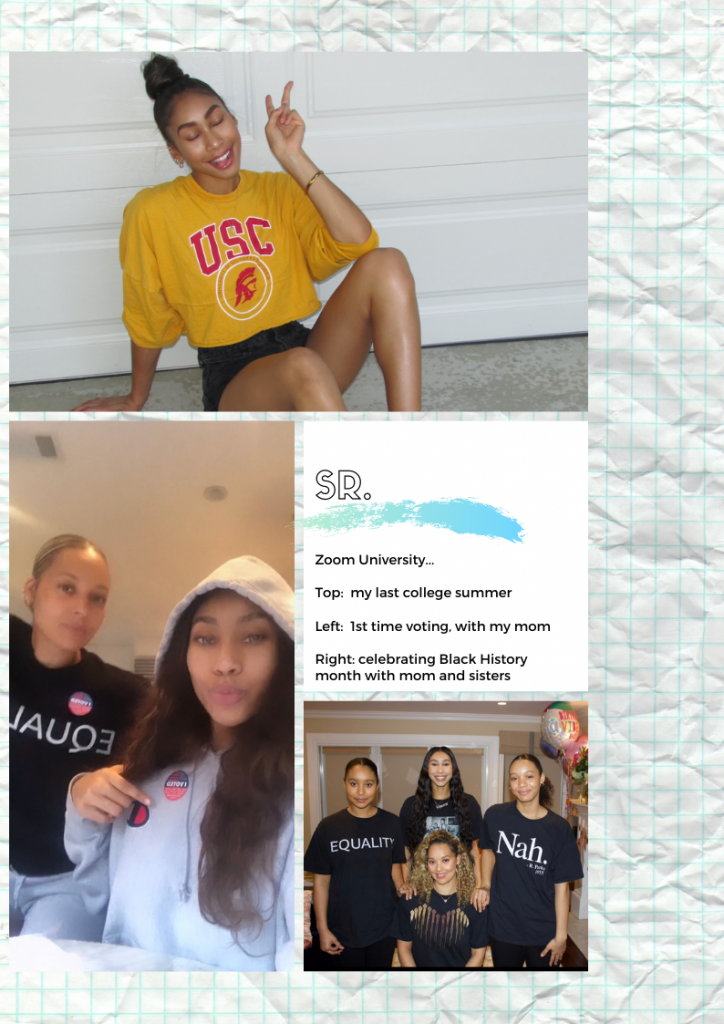Cameron Antoine-Dillon.

A Black female.
An aspiring journalist.
A student-athlete.
A complicated identity.
MISSION STATEMENT
As a Los Angeles native & student-athlete, I have established great networks ranging from professional & collegiate athletes and advocates, to entertainers and entrepreneurs. Here, I have been inspired by this cultural melting pot and my own experience to tell real stories driving sports, pop culture, and diverse communities. I am motivated to not only investigate the “hard news” facts or serve punching a headline, but also introspect the bigger picture which binds and affects us all.
I know each story must be uniquely unfolded, whether that be in print, video, podcast, or photo series. This is where I believe I define my style as a reporter, as I love to create meaningful, impactful stories for viewers to resonate with. As a Black female journalist, my work will always have elements of sophistication, representation, and truth. My ultimate mission is to represent millions of women who look like me & redefine stereotypes that failed to silence me.
Black At USC is a senior capstone inspired by my own doubts, injustices, & milestones throughout my young teenage to young adulthood years. In these transformative years at PIWs, I struggled finding a social crowd who not only understood but looked like me. Microagressions on top of the external/internal pressure to succeed athletically & academically made the best years of [my] life exhausting. I wanted to create an authentic space not only of my journey, but to finally connect with and tell a raw story of a Black community at a PWI.
2013-2015
Freshman year. Moving from a small Christian school in the valley to the multi-million dollar “college campus” at Oaks Christian High school was an adjustment!
I was 1 of 3 Black girls in my grade and often ate lunch in the bathroom or down stairs to avoid socializing with the overwhelmingly rich and white peers.
Sophomore year. I felt comfortable and accepted into the in-crowd as I finally got invited to the Homecoming after parties and intimate study sessions. I was their funny, athletic, & supportive Black girl-friend.
Yet, between the ignorant Black jokes & questions, inappropriate touching & masculinization of my body from even my Black male peers, and bias attitudes from faculty, I left.
2015-2016
Junior year. At a club volleyball tournament, I was scouted by a Sierra Canyon coach looking for to build their program into a Championship empire. Sierra Canyon checked all the boxes: diverse students, challenging academics, & nationally ranked athletic program.
I was honestly excited and confident in a new environment. Being a vital part of the team, I quickly built close friendships on and off the court. I was no longer the only Black girl, but this opened up a whole new set of issues.
My new athletic & academic success and guy friendships, led to drama from both white and Black girls. Even though I had fun and was involved, I still felt an uneasiness with a certain group of girls that caused a sense of social anxiety in the classroom, during lunches, and at school events or parties.
2017
Senior Year. This was a hectic time. I wanted to hold onto full of nostalgic memories yet still make room to create ones. In my senior year I: was the school’s 1st sports sideline reporting covering the CIF championship football team; was a apart of the school’s 1st CIF Division IV volleyball championship; was the 1st person to perform a spoken word in front of the whole school for Black History month; drive down with friends and attended Coachella for the 1st time; was the lead role in A Raisin in the Sun, which was the school’s 1st all-Black casted play; and went to senior prom in two dresses for the ultimate Beyonce moment.
This last year truly felt like nothing could top it. Despite the ups and down, I still memorialize Sierra as the best time of my life, thus far.
2017-2018
Freshman year. I believed being away from fast-paced L.A. and its toxic social circle would allow me to unwind and flourish. But this too eventually took a toll.
I was 1,500 miles from home. Like freshman year of high school, again I was 1 of 3 Black girls on my team––the only non-mixed Black girl for context. More importantly I suffered from a preseason brain injury, that led to unsupportive coaches who didn’t believe I was injured. The coaches false perception of me, set the. tone for my teammates to mistreat me which they masked as “what every freshman goes through.” Multiple instances of racist comments from teammates––”oh your hair is actually cute, I thought it was nappy;” “you’re only the fastest because you’re Black, it’s science” was not what I had in mind. I felt disconnected and anxious.
There was a not to mess up in practice or games to avoid. conflict, but also I had no one to help me transition. Then, there. was two unforeseen deaths––football player Tyler Hilenski and basketball trainer David Lang–– days apart.
That spring, I left my full-ride athletic scholarship and came back home on anxiety medication. To say the least, I was embarrassed and felt defeated.
2018-2020
Sophomore year. The iconic cardinal and gold, was a place I fantasized about from watching Love & Basketball on repeat and attending volleyball camps with the infamous Coach Mick Haley. Anyone from high school, knows I manifested USC. Finally, I was going to my dream school to experience the best time of my life.
Still, I missed orientation, infamous Somerville stories, functions, and building organic connections as a transfer. After this first year, I realized USC wasn’t full of that early 00s Black love and culture, I naively believed on the screen; racism and discrimination was just nicely tucked away in the luxurious bells and whistles.
Here, I experienced microagressions in multiple environments. At home, my previously assigned roommates called me “a b*tch” after I was tired of cleaning up their kitchen messes, and new Rowing teammates who went through my phone and led others to believe I was hooking up with an athlete and give me silent treatment. My newfound confidence was shattered. Although I did make attempts to go out and have fun, I slowly becoming closed-off.
Junior year. I was finally recovered from a back injury and ready for a break out season. Then COVID hit. A global pandemic took out my season and relocated me back home. We all joked of being enrolled at Zoom University, as we were transferred to a digital educational space. With stress of a pandemic racial injustice and zoom classes, I had an intersection of academic experiences. One being a Psychology professor that “did not believe” I had a concussion because “I did well on the quizzes”and made numerous reports to my athletic advisor behind my back.
2021
Senior year. With the pandemic seemingly shutting down campus, I replayed a lot my very few college memories. I felt my college experience was inadequate compared to others with stories for days. The summer going into senior year, I, alongside the rest of the world watched George Floyd murdered, the protests, and overwhelming news coverage of pandemic and police brutality. During this time of exposure, I and the rest of the Black Trojan community was frustrated by the university’s pattern of discriminatory behavior.
I was intrigued how the marginalized Black Trojan community came together, and self-reflected on my own shortcomings of getting culturally involved on campus. Before the pandemic, I saw how our community was overlooked, but also did not really know each other. I was on a quest to get to know Black Trojans to fulfill my own longing of community, but also share the many overlooked experiences and accomplishments we’ve had.
It was hard enough conducting interviews, considering the technological and physical limitations in a pandemic. But it was more difficult finding Black Trojans for one, overcoming the anxiousness of reaching out even to those I have met prior, and the level of rejection I endured not getting responses back. Ironically, my efforts to uplift and promote Black Trojans accomplishments and experiences, signified the daily struggle of a Black female trying to make it in this world.
Despite this, the Black Trojans, past and present, who have helped me through this process, did fulfill my longing of Black connections. Their unique experiences, accomplishments, and advice reminded me of the Black excellence we all exemplify.
I think about the question “what advice would you give a younger you, knowing what you know now?” I asked all of my Black Trojan interviewees this. Sure it’s cliche, but it really is a powerful question. Looking back at the past three years, I wished I got outside of my head and lived more. It would a mistep to say, I tried everything I could when I should have went to more BSA meetings, the events and parties, student-athlete board meetings, and the student-led protests. These are the moments, I ask my Black peers about, rather being able to share it with them. I got so caught up of maintaining an image of academics and athletic excellence that I forgot the very image most see me––Black.
The takeaway is not regret, but growth. Being Black at Oaks Christian, Sierra Canyon, Washington State, and USC was and is an accomplishment in itself. I have broken barriers, made history, and exposed to great heights that all played apart in my personal growth and journey. As I prepare for the next chapter in my life, I know a lot of the world may still be the same, but this time a lot for me will be different.






